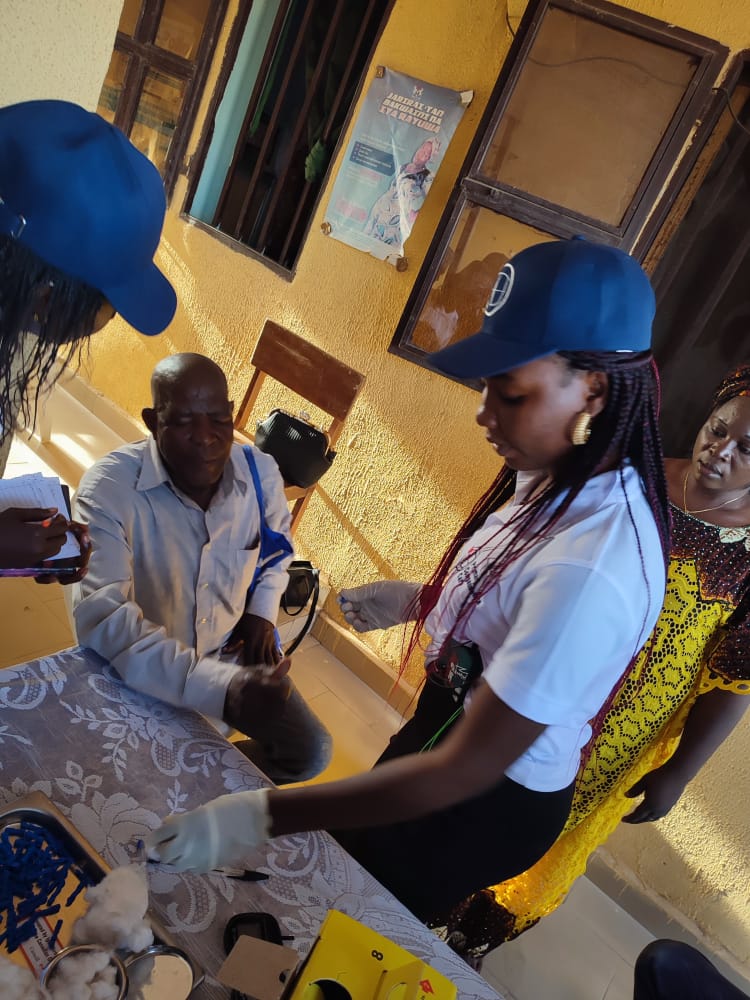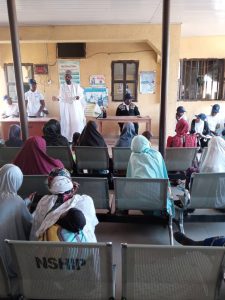POLICY ANALYST
Governments play a crucial role in global public health, but the health and well-being of billions of people around the world cannot be left up to politicians alone. After all, hunger, disease, and natural disasters last much longer than the average election cycle, and the effects of public health crises go on for generations. That’s why policy analysts are such important international public health jobs, making the public health system function on a global level. Policy analysts study programs and their effects on communities, standing between government and health organizations to make sure government regulations and policies help, rather than hinder, the work of global public health. They report findings to their government, interpret law for organizations, and keep the big picture in mind at all times.
EPIDEMOLOGIST
An epidemiologist really exemplifies what public health and global health do; everything that we know about infectious diseases, all of the key information necessary for understanding and fighting epidemics and pandemics, is due to epidemiologists. Epidemiologists are tasked with researching and analyzing patterns of disease, using biostatistics, observations, and even interviews to understand how diseases pass through a community. They design research studies and report their discoveries to the people who lead the public health system: government, healthcare workers, and the public. Working in the field, they expose themselves to great risk in order to protect and heal people.
MEDICAL OFFICER
In all of the red tape and bureaucracy of global health, it’s easy to forget that health is the foundation of it all. Big agencies and organizations have a tendency to become institutionalized, and become focused on merely keeping their existence going, but medical professionals are the heart of global public health, and among the most important international public health jobs. Medical officers and workers include professionals ranging from doctors, nurses, and midwives, to PAs and medical technicians. At the highest levels, Medical Officers manage programs and staff in healthcare facilities and in the field, while also providing useful medical consulting to the policymakers and administrators who may have no medical training at all. Global public health does not work without the doctors and nurses who know how to treat patients.
PROGRAM MANAGEMENT AND ADVISING
When it gets down to brass tacks, global public health is a bureaucracy, and a bureaucracy runs on administrators. At any given time, an organization like Oxfam or Amnesty International, or a major intergovernmental organization like the United Nations, has a staggering number of projects going on. Those programs need managers, making Program Management one of the main international public health jobs available to professionals working in global health. Managers are responsible for the short and long-term strategies, implementing plans based on the advice and insights of epidemiologists, medical officers, and policy analysts. They set standards, make sure aid workers are properly trained, and keep their projects in compliance with regulations and ethical standards. In other words, they’re the jugglers.
HEALTH SCIENTIST
While epidemiologists may get the most attention, there are a host of health scientists who do the research that fuels global public health. From direct research in the field to laboratory studies to community interviews and surveys, health scientists are finding solutions to the public health problems that plague humanity on a global scale. Health scientists are responsible for conducting studies, analyzing results, developing new methodologies, and cooperating with government and NGOs to communicate their findings. Among global public health jobs, the health scientist is the most in the background (except for the very few who become public intellectuals, appearing in the media), but it’s the career that is most crucial to finding new ways to help.
To work as a health scientist, you will need at least a bachelor’s degree in a scientific field, such as biostatistics, a social science field, or in public health.
PUBLIC HEALTH ADVISOR
“Public Health Advisor” is a bit of an amorphous job title, but think of it as the experienced and wise figure who works to keep organizations aware of the long view, providing the connection between all of the many moving parts of any complex public health undertaking. An advisor is not precisely a manager, making sure every member of the team does their job; rather, the job of a public health advisor is to synthesize all of the research, policies, regulations, and actions of the various programs to make sure that projects stay on target. They coordinate with partners to develop strategies for taking on the issues at hand. A public health advisor, most importantly, knows what is at stake and keeps their organization from losing sight of the matter at hand – improving health around the world in a practical way.
FIELD CONSULTANT
The true operations of the global public health system take place in the field, directly in the communities affected by disease, pollution, natural disasters, and war. While some workers in the field are permanently placed, many, many more are volunteers or temporary workers. With any new undertaking, it is absolutely critical to have a field consultant who knows the area, knows the community, knows the local laws and customs, and knows how organizations can do their jobs best, first-hand. Consultants must also examine and analyze how organizations are functioning for efficiency, cost management, and effectiveness. They may be hired from outside as independent consultants or from a firm, or they may be employed directly by an organization, but the field consultant is a key international public health job.
It’s hard to really pin down the education level and salary of a field consultant, because the work, and the organizations the work is done for, vary so widely.
DISASTER RELIEF SUPPORT TECHNICIAN
Events in the 21st century – including a rise in terrorist activity, increased natural disasters, and man-made emergencies – has made disaster relief management one of the fastest-growing international public health jobs in the world. On a global level, Disaster Relief Support Technicians are necessary professionals addressing the problems that arise in the aftermath of a disaster, especially in economically depressed and unstable regions that suffer the most. Disaster relief professionals are involved in all levels of public health, from government to charitable organizations, and they incur a great deal of risk even if they are not on the front lines of a disaster.
GLOBAL HEALTH EDUCATOR
When it comes to the global public health jobs that have the most direct impact on people, health scientists perform research and help create solutions; medical professionals provide on-the-ground care to patients, implementing those solutions; and public health educators make sure that the people of the community have the knowledge they need to find treatment, get well, and prevent disease. Global Health Educators are the crucial link between the science and the community, helping communicate directly with the people. It’s an international public health job that requires a great deal of compassion and empathy, along with cultural understanding, language and communication skills, and strong networking skills. After all, global health workers can’t help where they are not trusted, and winning the people’s trust is the biggest job of Global Health Educators.
NGO AID WORKER
Global public health is, above all, a job that takes place in the field. While decisions may be made by managers and administrators in offices in Washington (or the CDC in Atlanta, or the WHO in Geneva, or any number of other places), it’s the experts in the field who make things happen. Whether it is scientists doing research, care workers providing health services, or educators informing the public about prevention, every operation rises and falls on its field workers. Humanitarian workers come from all sorts of backgrounds, and work for all sorts of organizations: OxFam, Amnesty International, United Nations, and UNICEF are only a few of the largest, and the logical place to start for international public health jobs. If your goal is to work in international communities changing lives, humanitarian aid worker is the place to start.





Primary compassion care I really try to help